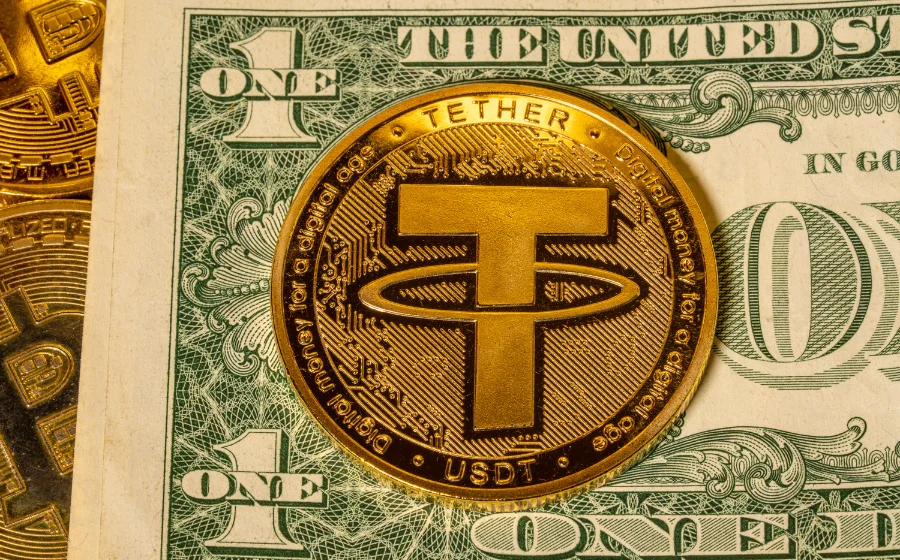
KEYTAKEAWAYS
- Forex is stable, Crypto is volatile – Forex is a regulated market with structured trading, while Crypto offers higher volatility and profit potential.
- Market size and participants differ – Forex involves banks and institutions, whereas Crypto relies on exchanges, miners, and individual traders.
- Trading hours and accessibility – Forex has set trading hours, while Crypto runs 24/7, making it more flexible but also riskier.

CONTENT
Forex is stable and regulated, while Crypto is decentralized and volatile. Learn the key differences, risks, and opportunities to choose the right market based on your trading style and risk tolerance.
Forex and crypto trading are both popular investment methods on the internet today, with millions of users making money from these markets every day.
However, for beginners, a common question often arises: What are the key differences between forex and crypto trading? Which one is the better investment choice?
>>> More to read: How to Start Trading in Crypto: A Beginner’s Guide
WHAT IS FOREX TRADING?
Forex (foreign exchange or forex trading) is the world’s largest and most liquid financial market, where individuals, businesses, and central banks exchange one currency for another.
Think of it as a global marketplace that connects buyers and sellers to trade currencies at agreed-upon prices. If you’ve ever traveled abroad and exchanged money, you’ve already participated in forex trading at a basic level.
However, unlike currency exchange for travel purposes, the majority of forex transactions are driven by profit-seeking traders looking to capitalize on exchange rate fluctuations.
Traders use technical analysis, fundamental analysis, and leverage tools to identify the best trading opportunities in the market.
>>> More to read: Bitcoin vs. Gold: Which is the Better Investment?
WHAT IS CRYPTO?
Crypto (cryptocurrency) is a digital asset secured by cryptographic technology. Most Crypto assets are built on blockchain technology and, unlike traditional fiat currencies, are not issued by governments or central banks.
Crypto trading is highly flexible, offering more than just spot trading. Traders can also access various derivatives, including:
Allow traders to use leverage to maximize capital efficiency
Unlike traditional futures, these have no expiration date and can be held indefinitely
Enables traders to amplify their positions and profit from both long and short trades
Compared to the forex market, 👉 Crypto operates 24/7, providing continuous trading opportunities. While this creates greater profit potential, it also comes with increased volatility and risk.
Before entering the market, traders should fully understand risk management strategies and choose a trading approach that aligns with their risk tolerance and investment goals.
>>> More to read: Crypto vs Stocks: Which is the Better Investment?
SIMILARITIES BETWEEN CRYPTO & FOREX
Crypto and forex trading share many similarities, as both markets are highly volatile and speculative in nature.
Investors do not trade these assets for their intrinsic value but rather for their potential trade value.
In other words, the value of holding foreign currencies or crypto largely depends on whether they can be resold at a higher price to another trader.
📌 Additionally, Crypto and forex markets have several key similarities:
- Short-term trading & market risk: Both crypto and forex traders often focus on short-term trades, taking advantage of price fluctuations to generate profits. However, this also means both markets are highly risky, with asset prices being influenced by news, policies, and major global events.
- Reliance on technical analysis: Traders in both markets heavily depend on technical analysis, using tools such as candlestick patterns, support and resistance levels, and indicators like MACD and RSI to predict price movements and develop trading strategies.
- Knowledge and strategy are essential: To achieve consistent profitability, traders in both crypto and forex markets must have a deep understanding of market mechanics, trading strategies, and risk management. Mastering market trends, leverage, and trading tools is crucial for increasing profitability while minimizing potential risks.
Although crypto and forex share many similarities, they still have fundamental differences.
Before choosing a market, traders should fully understand the characteristics of each and select the one that best aligns with their trading style and risk tolerance.
>>> More to read: What is Bitcoin Strategic Reserve & How It Works
FOREX VS. CRYPTO
1. Different Market Participants
The forex market consists of multiple participants, including central banks, commercial banks, investment funds, corporations, retail brokers, and traders. Each plays a unique role in the ecosystem.
For example, commercial banks serve as the backbone of international currency exchange, while central banks intervene not for profit but to stabilize exchange rates and influence national economies.
In contrast, the crypto market is primarily composed of three key participants: exchanges, miners, and traders. crypto exchanges serve as digital marketplaces where users can buy and sell cryptocurrencies.
Miners are individuals or entities responsible for validating blockchain transactions by solving complex algorithms.
Meanwhile, traders speculate on price movements without necessarily owning the underlying asset.
2. Market Size Differences
The forex market is enormous, primarily due to its involvement with corporations, banks, investors, funds, and individuals who rely on it for real-time currency exchanges.
On the other hand, the crypto market, while growing rapidly, remains significantly smaller. Though still in its early stages, it has seen substantial progress with blockchain expansion.
In 2021, the global crypto market, measured in USDT, was valued at $60 billion and is projected to reach $120 billion by 2028.
3. Different Market Structures
Both forex and crypto markets are structured around supply and demand, influencing how traders negotiate prices without government approval.
Transactions in both markets can occur via over-the-counter (OTC) trading or through exchanges and brokers.
Despite their decentralized nature, there are key differences.
While forex trading involves traditional fiat currencies regulated within the financial system, crypto operates exclusively in the digital realm, stored on blockchain networks.
Crypto transactions occur solely through digital wallets and require mining for validation.
The forex market follows a regulated structure, ensuring compliance with financial authorities. Meanwhile, crypto markets operate with less formal regulation, making them more susceptible to illicit activities.
However, this also creates greater price fluctuations, offering higher profit potential.
4. Asset Accessibility
Forex markets are more widely accessible than crypto, which operates as a digital asset.
Liquidity in crypto depends largely on major exchanges. However, its decentralized nature continues to fuel global interest and attract investors.
Additionally, because of decentralization, crypto assets can be permanently stored in digital wallets, making private asset management more challenging for regulators.
Unlike forex, which is limited to a set number of globally recognized currency pairs, the crypto market is vastly diverse.
Beyond well-known assets like Bitcoin and Ethereum, there are over 11,000 cryptocurrencies actively traded on blockchain networks, with new tokens constantly emerging. This makes tracking the crypto market highly complex.
5. Volatility Differences
Both forex and crypto markets experience volatility, but crypto tends to be far more volatile. Even minor market shifts can cause significant price swings within a single trading session.
Conversely, forex pairs experience high daily trading volumes and tend to fluctuate within narrower bands.
While the volatility of forex attracts many traders, the extreme price swings of crypto create even greater opportunities—though also higher risks.
6. Trading Hours
Forex markets are open weekly from Sunday at 5 PM EST to Friday at 5 PM EST for retail traders. Trading sessions are divided into four key periods:
- New York: 8 AM – 5 PM EST
- Tokyo: 7 PM – 4 AM EST
- Sydney: 5 PM – 2 AM EST
- London: 3 AM – 12 PM EST
Each currency pair has its most active trading period, and different stock exchanges operate on specific schedules during business days. For traders in certain time zones, the availability of their preferred markets may be limited.
In contrast, the crypto market operates 24/7, allowing traders to execute transactions anytime, including weekends.
This makes crypto an attractive option for those with full-time jobs or busy schedules, particularly those interested in weekend trading.
>>> More to read: Crypto Beginner’s Guide | What, Why, Where, When, Who
Forex is stable and regulated, while 👉 crypto is volatile and decentralized. Forex suits structured trading, whereas crypto offers 24/7 flexibility but higher risk. Your choice depends on risk tolerance and trading style.


















